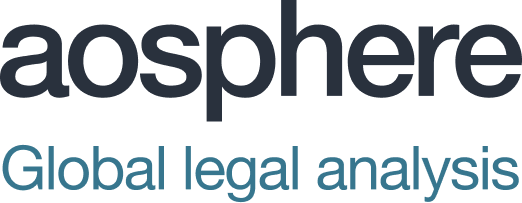- The EU Markets in Crypto-Assets Regulation 2023/1114 (MiCA) introduces a pan-European financial services licensing and supervisory regime for issuers of crypto assets and crypto platforms and crypto asset service providers (CASPs) in relation to a wide range of crypto assets, including exchange tokens (like bitcoin or ether), utility tokens, stable coins and asset-referenced tokens
- MiCA entered into force in the EU on 29 June 2023, with provisions relating to issuers of asset-referenced tokens and e-money tokens beginning to apply from 30 June 2024 and the remainder, relating mainly to CASP authorisation, from 30 December 2024
- MiCA is a regulation and as a result will apply directly throughout the EU without any national implementing legislation being required. However, Member States will need to ensure their national legislation aligns with MiCA. Where applicable, changes to existing crypto regimes may be needed. In addition, certain measures have been left to the discretion of individual Member States
- The table below tracks whether a Member State has (or has announced) an implementation plan and taken a position with respect to certain matters left up to Member State discretion. For further detail, see the local counsel Survey
Notes
A. Transition Period:
Member States may adopt a transition period allowing entities providing crypto-asset services in accordance with national applicable laws before 30 December 2024 to continue to do so until 1 July 2026 or until they are granted or refused a MiCA CASP authorisation (MiCA Article 143(3)).
- The Czech Republic, Estonia, France, Luxembourg and Malta jurisdictions have/intend to implement the full 18-month Transition Period until 1 July 2026.
- A number of jurisdictions have/intend to implement a shortened Transition Period:
- 12 months or until 30 December 2025 in Ireland and Italy/31 December 2025 in Austria, Germany and Spain;
- 6 months or until 30 June 2025 in the Netherlands and Poland (for registered VASPs only; other entities may provide their services until a decision from the KNF on their application); and
- 5 months or until 1 June 2025 in Lithuania.
- Note that some jurisdictions that have/intend to implement a Transition Period are requiring entities providing crypto-asset services to apply for/obtain a MiCA authorisation by a specified date and comply with certain other requirements:
- Italy requires entities to file an application to be authorised as a CASP by 30 June 2025 and comply with certain other requirements e.g. provide via their website and to clients adequate information as to the plans, arrangements and measures they intend to implement/apply to comply with MiCA;
- Poland requires entities which are not registered VASPs (e.g. entities providing only asset management with respect to crypto assets) to submit a complete CASP licensing application by 1 May 2025; and
- the Czech Republic requires entities to file an application to be authorised as a CASP by 31 July 2025.
B. Simplified Authorisation Procedure:
Member States may adopt a Simplified Authorisation Procedure for entities that were already authorised under national applicable law on 30 December 2024 to provide crypto-asset services (MiCA Article 143(6)).
- France and Germany have both introduced measures for a Simplified Authorisation Procedure and Malta has indicated it will adopt a Simplified Authorisation Procedure.
- In Estonia and the Netherlands, there is no formal Simplified Authorisation Procedure but the process is expected to be more straightforward for already authorised/registered entities and previous information may be taken into account.
Note
The information in the table above is extracted from more detailed analysis provided to aosphere by local counsel in a Survey (see below for further detail) and provides a consolidated snapshot of how the above detailed aspects of MiCA are being treated and interpreted across the EU Member States that are covered by aosphere. The table reflects the latest position/draft legislation as at the date of this document. The final position may differ from that set out here. We will refresh this document periodically.
How aosphere can help
Rulefinder Crypto Assets includes Surveys for each Member State, as prepared by local counsel, which provide more detailed analysis for each Member State, including for example as to whether Member States have indicated that they intend to adopt any additional measures/gold-plating to MiCA (including for example consumer protection measures and administrative penalties and other administrative measures). We will be asking local counsel to update these periodically.
For further background on MiCA please see the EU Member States Survey and report, available to subscribers of Rulefinder Crypto Assets.





